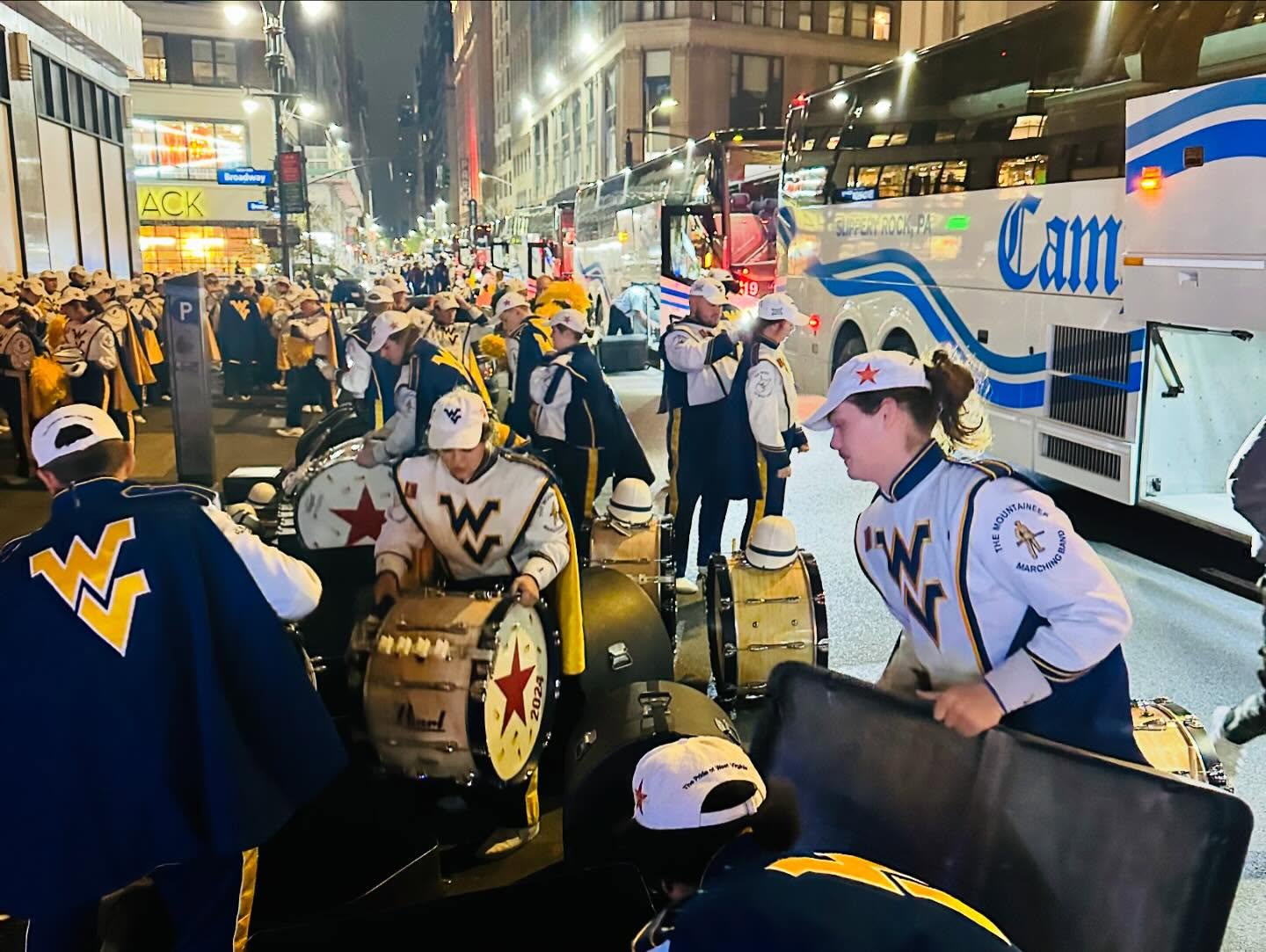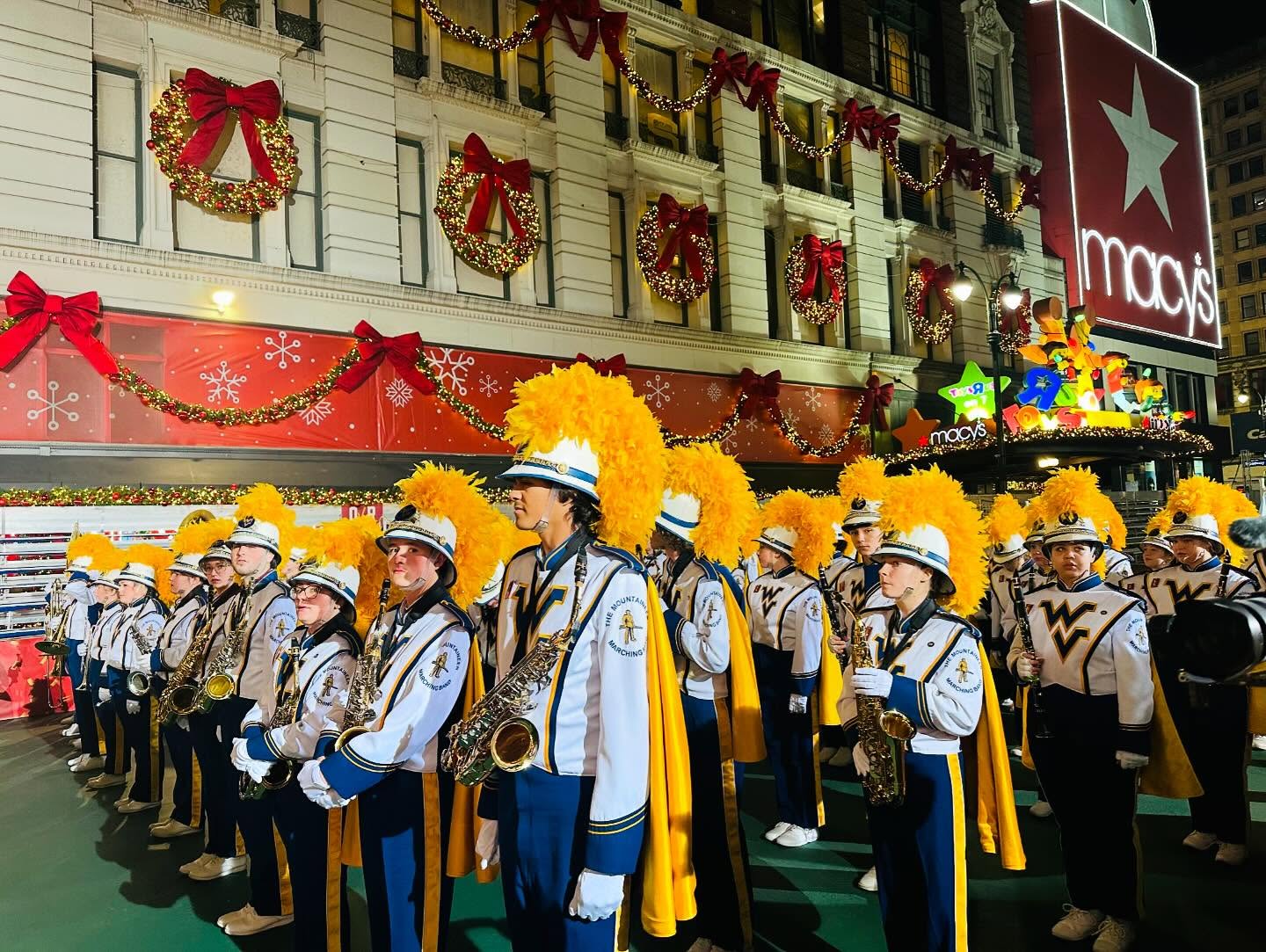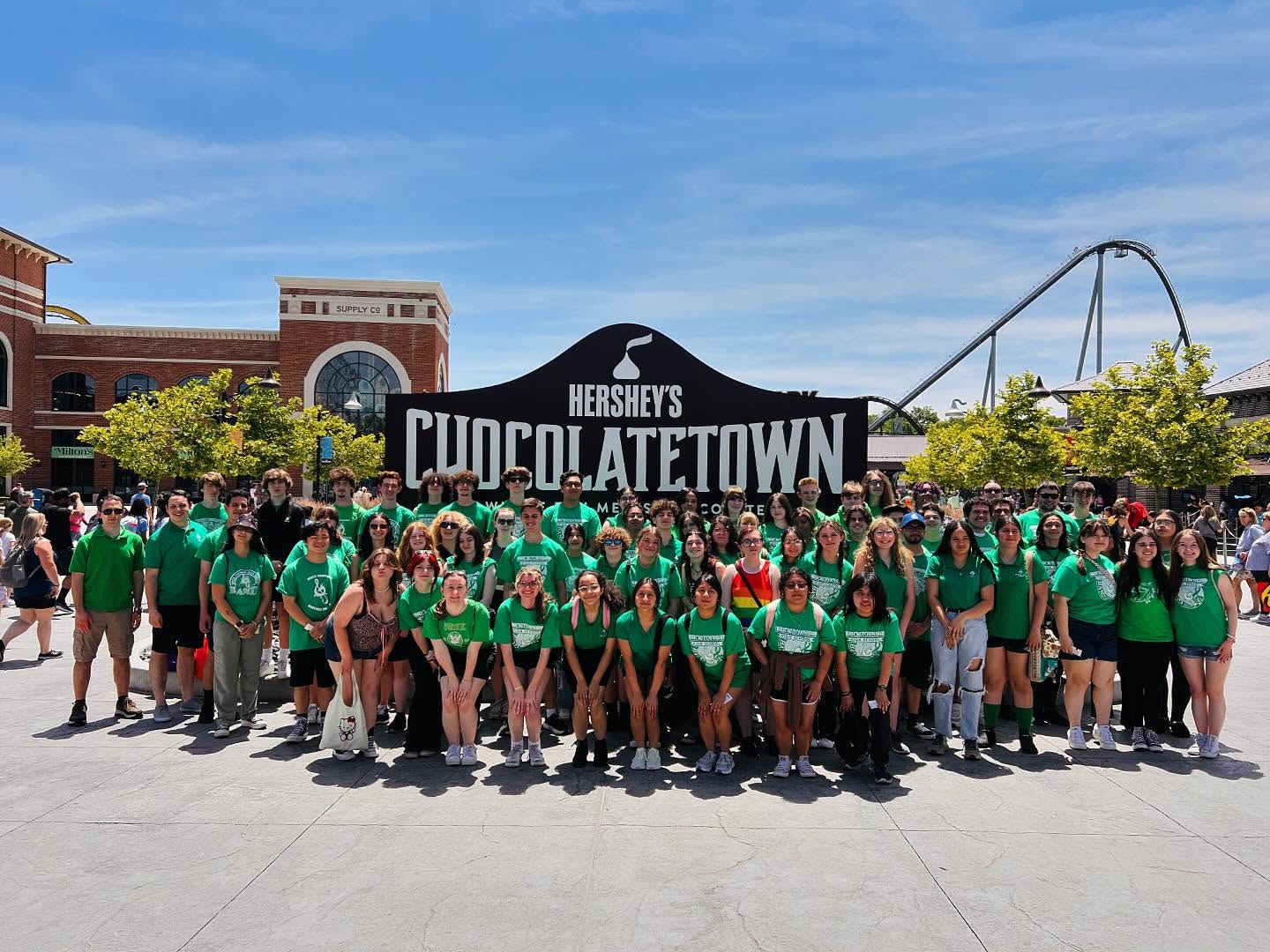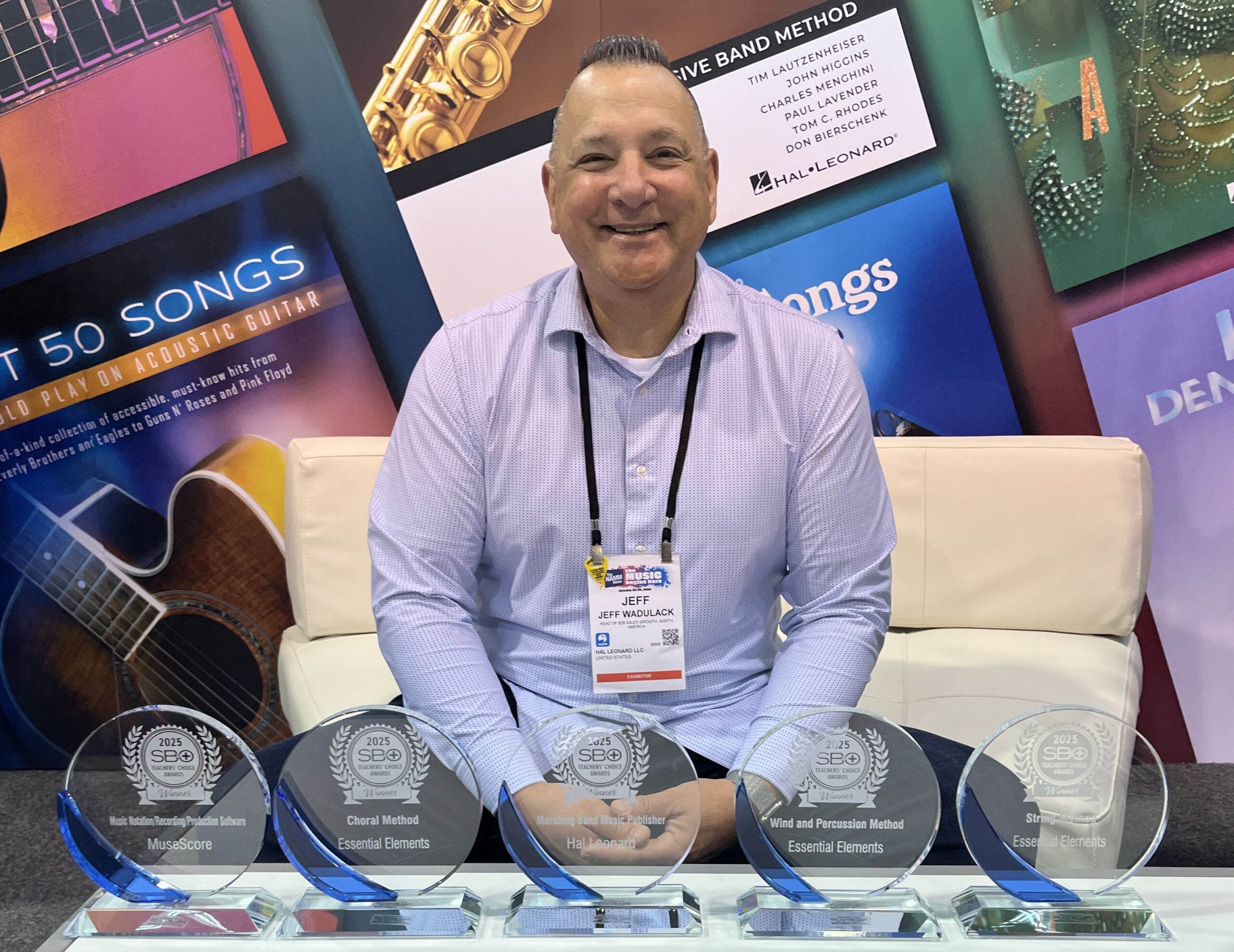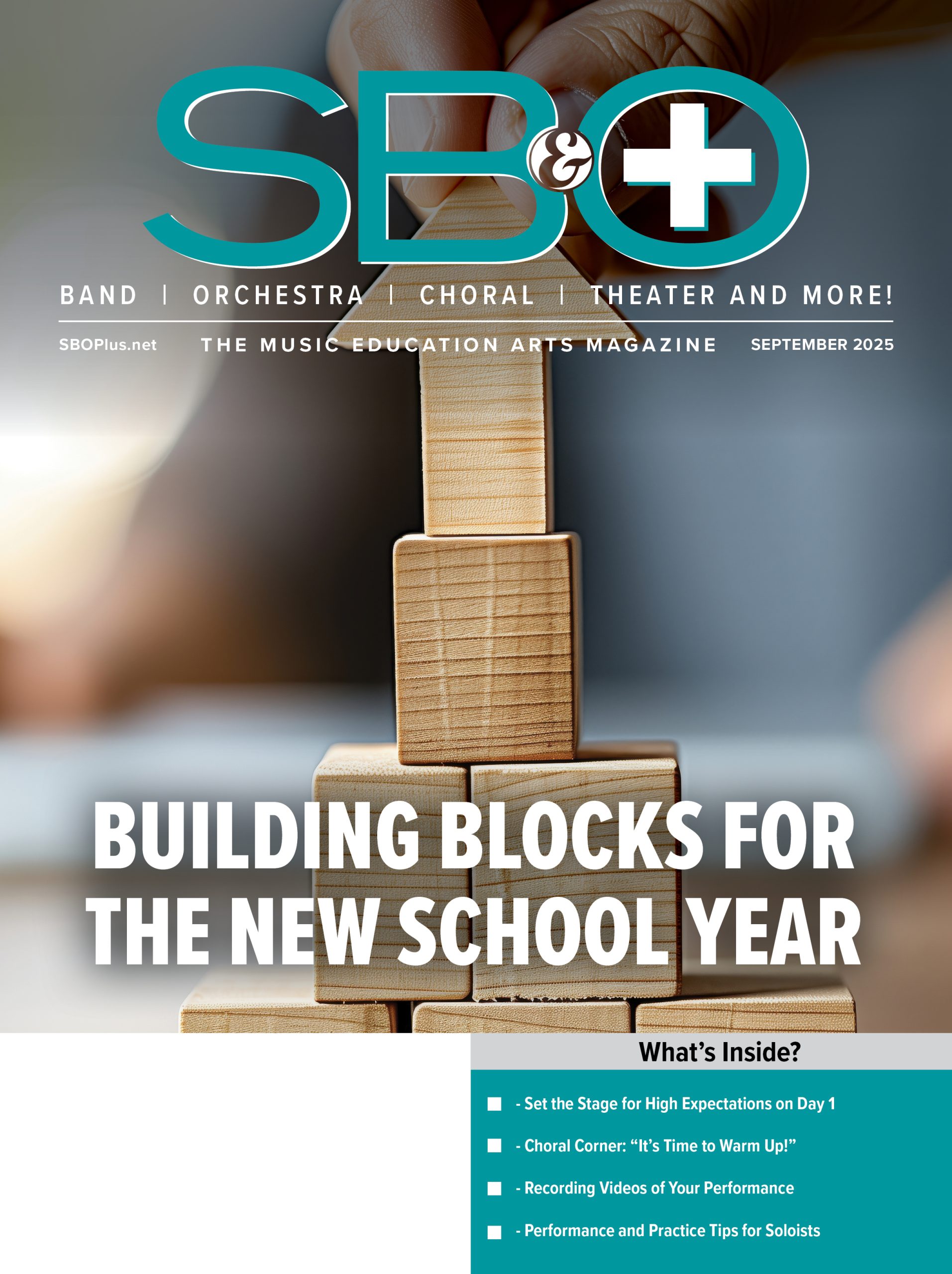 Music educators all over the United States strive to ensure equitable access to music education for every child. As such, music educators are increasingly aware of the need to create welcoming learning spaces and engaging instruction for all students while creating, performing, connecting, and responding to a variety of musics. These efforts align with NAfME’s mission: to be a collaborative community that supports music educators and advocates for equitable access to music education.
Music educators all over the United States strive to ensure equitable access to music education for every child. As such, music educators are increasingly aware of the need to create welcoming learning spaces and engaging instruction for all students while creating, performing, connecting, and responding to a variety of musics. These efforts align with NAfME’s mission: to be a collaborative community that supports music educators and advocates for equitable access to music education.
Since late 2020, more than 20 states and a variety of school districts have enacted policies that restrict teaching, professional development, and student learning in K–12 schools regarding race, gender, sexuality, and U.S. history. These laws are often called divisive concepts laws (DCL) because the language was adopted or adapted from Executive Order 13950, which prohibited a list of “divisive concepts” in training for federal employees and contractors.
After hearing from music teachers in impacted states, NAfME released a report on DCL and music education in March 2023. This report (1) provides answers to frequently asked questions about DCL, (2) describes results from a survey regarding the impacts of DCL on music educators, music education, and music students, (3) shares stories of eight impacted music educators, and (4) offers resources and suggestions. While I encourage you to read the entire report, here are a few important takeaways.
DCL Impacts on Music Teachers, Students, and Curriculum
NAfME members who responded to the survey were split on their views regarding DCL.
About half of respondents stated they were not directly affected—for a variety of reasons including (1) working in a state that does not have DCL, (2) believing music content does not include anything divisive, (3) or that social identities (such as ethnicity, gender, race, or sexuality) are irrelevant in music instruction, (4) autonomy to teach as desired, (5) agreeing with the laws, and (6) refusal to acquiesce to the laws.
Teachers reported that DCL were vague and confusing—open to different interpretations by teachers, students, parents, administrators, and community members. Inconsistent implementation also make it unclear what they were allowed to do. Most affected participants said DCL restricted curriculum, repertoire, and the topics that could be discussed in music. Teachers self-censored their speech and repertoire choices—not because they were breaking the law but because they were afraid of repercussions when other individuals misinterpreted the law. Participants reported restrictions on content limited their ability to ensure all students are heard, seen, and feel they belong in the music classroom.
Some educators believed DCL made it difficult to maintain and build relationships with students, and they voiced concerns regarding student wellbeing because of DCL. Finally, teachers stated the political environment around schools generally—and DCL specifically—was impacting their stress level and job satisfaction. As a result, some respondents reported plans to leave teaching, knew teachers who are leaving the profession, and/or noticed difficulties recruiting new teachers.
Suggestions for Music Educators
1. Know the laws in your district and state. This article (and the NAfME report) are not legal advice. Teachers need to inform themselves about laws or policies that could impact them.
2. Learn about the concepts and communicate within your school. After you know the laws and policies in your area, inform yourself and your colleagues about the concepts targeted by the laws. As the NAfME report indicates, concepts like social and emotional learning and critical race theory are not what some critics suggest. Music educators should understand these concepts and how they benefit students—as well as how approaches like culturally responsive pedagogy, universal design for learning, and programming diverse repertoire (including learning about the music’s context and composer/songwriter) are not necessarily violations of DCL.
3. Decide level of visibility. How visible do you want your efforts to be? Do you want to “make a point” and use language that might call attention to your work? Or do you want to cover the same concepts using more universal language? There is not a right answer here—it depends on your community, and how much you want to “push” these ideas. What is important is you continue to plan instruction to meet student and community needs, welcoming students with different abilities (including but not limited to special education needs), cultures, ethnicities, genders, sexualities, social classes (and more!) with music instruction that builds on their strengths, responds to their cultures, and expands their horizons.
4. Communicate. Communication is not just telling. Instead, you must take informed principled professional stances on why you choose your pedagogies and repertoire and defend yourself when necessary. Some people will simply not agree. However, a grievance or complaint is not the same as violating the law. It is also as important to communicate with potential allies and with administrators.
NAfME will continue to monitor developments related to DCLs and provide resources for music educators to better support their students.

